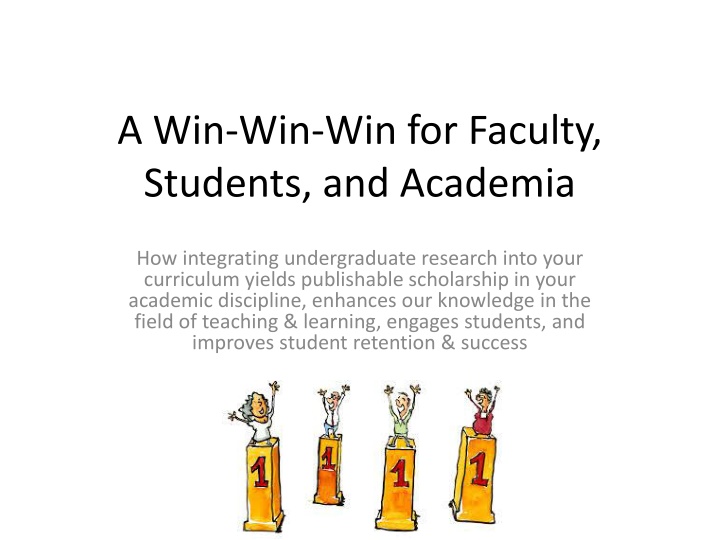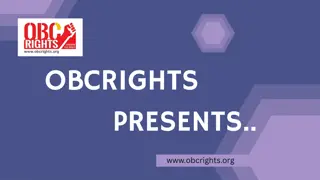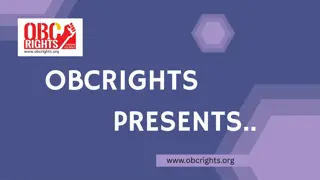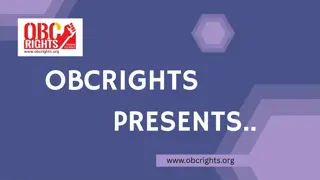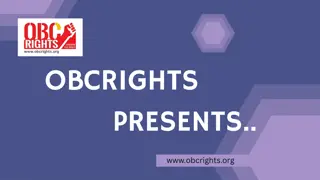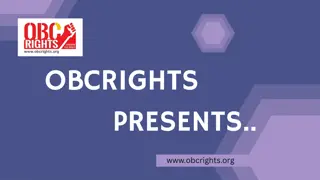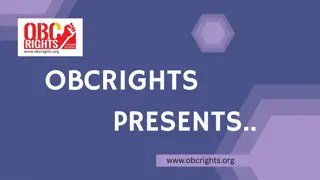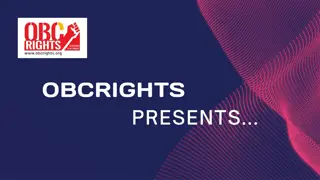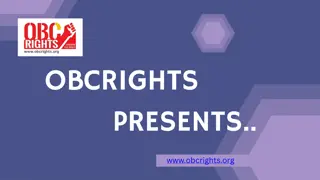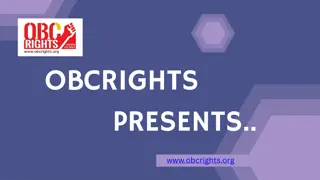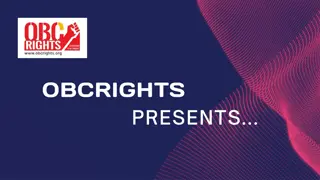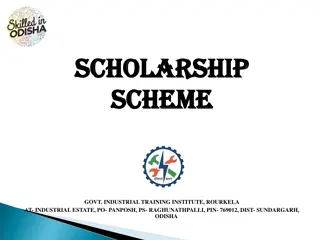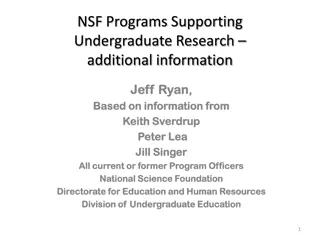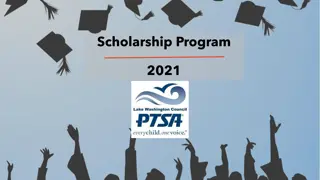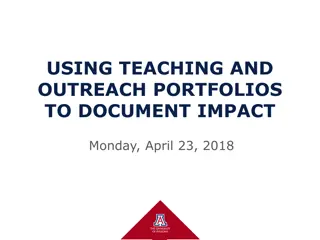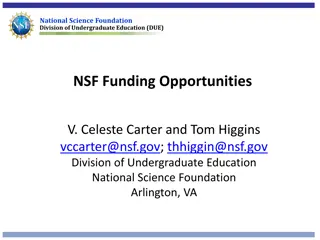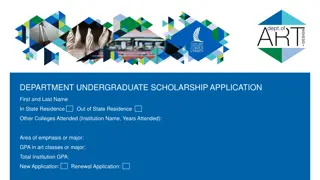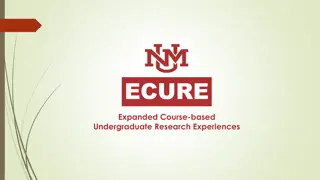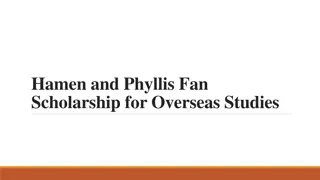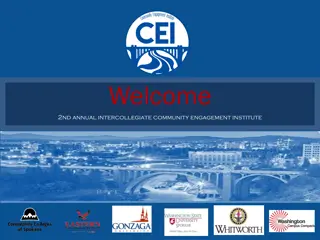Enhancing Student Engagement and Scholarship through Undergraduate Research Integration
Exploring the integration of undergraduate research into academic curricula to yield publishable scholarship, enhance teaching and learning knowledge, engage students, and improve retention and success rates. The benefits of authentic research experiences for undergraduates are highlighted, along with the importance of high-impact teaching practices and how SoTL can contribute to filling knowledge gaps in non-STEM disciplines.
Download Presentation

Please find below an Image/Link to download the presentation.
The content on the website is provided AS IS for your information and personal use only. It may not be sold, licensed, or shared on other websites without obtaining consent from the author.If you encounter any issues during the download, it is possible that the publisher has removed the file from their server.
You are allowed to download the files provided on this website for personal or commercial use, subject to the condition that they are used lawfully. All files are the property of their respective owners.
The content on the website is provided AS IS for your information and personal use only. It may not be sold, licensed, or shared on other websites without obtaining consent from the author.
E N D
Presentation Transcript
A Win-Win-Win for Faculty, Students, and Academia How integrating undergraduate research into your curriculum yields publishable scholarship in your academic discipline, enhances our knowledge in the field of teaching & learning, engages students, and improves student retention & success
Roadmap What is Research ? Hint: You all do research but some of you just don t call it that! Why should undergraduates engage in authentic research experiences? What does this have to do with SoTL? How could I make this work in my discipline? What s in it for me? What are the barriers and how can IUP facilitate?
Research Original knowledge production in any discipline Original (inquiry-based, not cookbook) Knowledge production (new information or confirmation of new information) ANY discipline! Seriously! Examples let s discuss What is an authentic research experience for students? Engagement in original knowledge production!
Importance of authentic research experiences for undergraduates High-impact teaching practice Improves retention in major Improves university retention Retention gains are even more dramatic for struggling students and those from underrepresented ethnic and racial minorities; students with disabilities; females; students of lower socioeconomic status; first- and second-year students, and others not traditionally involved in the development of new knowledge Helps students develop critical skills such as problem-solving, analysis, creativity, and communication Students feel more ownership in their knowledge and their success For more information, see CUR (http://www.cur.org/)
What does UG research have to do with SoTL? Benefits of UG research are known (see prior slide) BUT there s VERY LITTLE RESEARCH (especially in non-STEM disciplines) on best practices! SoTL can fill a critical gap in our knowledge about an important, high-impact teaching practice!
Thats nice. Whats in it for me? UG research doesn t have to be an altruistic pursuit Faculty have research interests but insufficient time to pursue them all Many of these interests map to the critical elements of core curriculum Your faculty interests can be translated into classroom projects Students collect, analyze, format, code, etc in support of YOUR research interests Students get a great experience and you get data in TWO areas: data you can use for your own discipline- specific research AND data on SoTL
How exactly could this work? How can we involve students? Barriers? Know-how, interest, time, money, others? Solutions? CTE CUR SGSR pilot project $$ available Students? Students can/should be engaged in all aspects of research design (both the discipline-specific aspect and the SoTL aspect)
